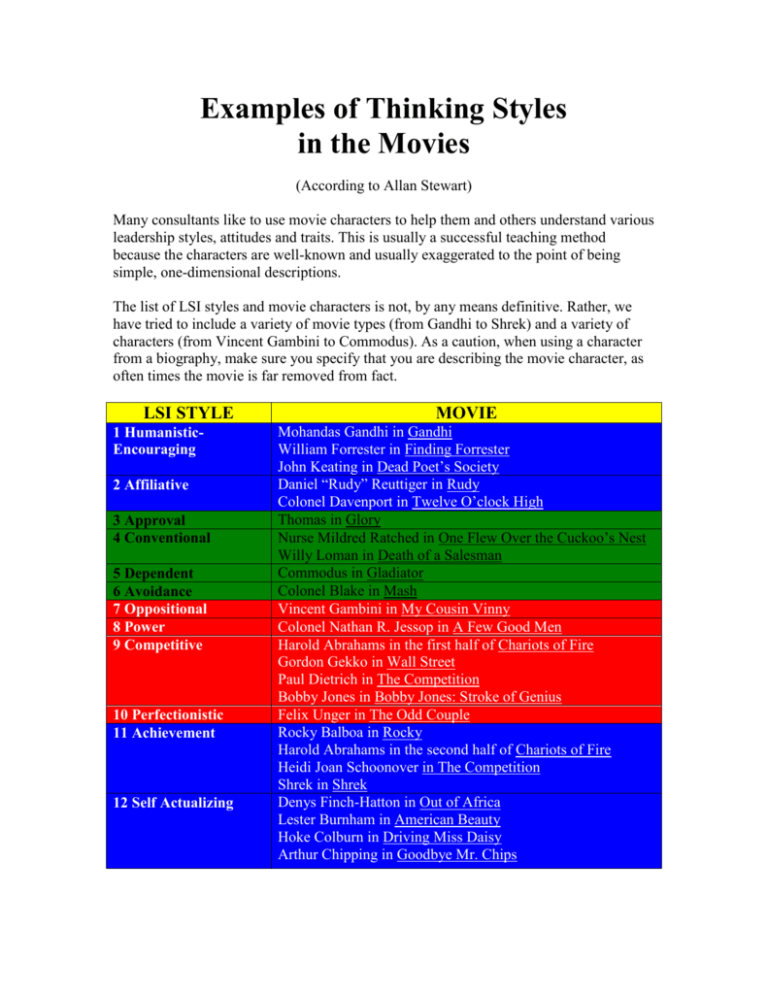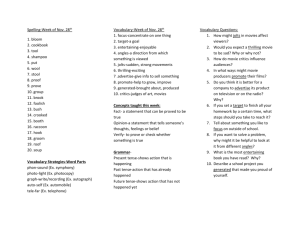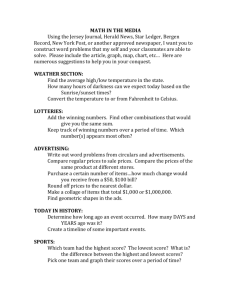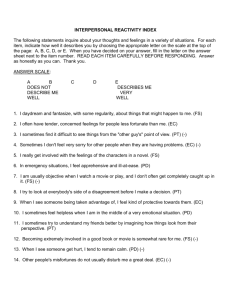Examples of Thinking Styles in the Movies
advertisement

Examples of Thinking Styles in the Movies (According to Allan Stewart) Many consultants like to use movie characters to help them and others understand various leadership styles, attitudes and traits. This is usually a successful teaching method because the characters are well-known and usually exaggerated to the point of being simple, one-dimensional descriptions. The list of LSI styles and movie characters is not, by any means definitive. Rather, we have tried to include a variety of movie types (from Gandhi to Shrek) and a variety of characters (from Vincent Gambini to Commodus). As a caution, when using a character from a biography, make sure you specify that you are describing the movie character, as often times the movie is far removed from fact. LSI STYLE 1 HumanisticEncouraging 2 Affiliative 3 Approval 4 Conventional 5 Dependent 6 Avoidance 7 Oppositional 8 Power 9 Competitive 10 Perfectionistic 11 Achievement 12 Self Actualizing MOVIE Mohandas Gandhi in Gandhi William Forrester in Finding Forrester John Keating in Dead Poet’s Society Daniel “Rudy” Reuttiger in Rudy Colonel Davenport in Twelve O’clock High Thomas in Glory Nurse Mildred Ratched in One Flew Over the Cuckoo’s Nest Willy Loman in Death of a Salesman Commodus in Gladiator Colonel Blake in Mash Vincent Gambini in My Cousin Vinny Colonel Nathan R. Jessop in A Few Good Men Harold Abrahams in the first half of Chariots of Fire Gordon Gekko in Wall Street Paul Dietrich in The Competition Bobby Jones in Bobby Jones: Stroke of Genius Felix Unger in The Odd Couple Rocky Balboa in Rocky Harold Abrahams in the second half of Chariots of Fire Heidi Joan Schoonover in The Competition Shrek in Shrek Denys Finch-Hatton in Out of Africa Lester Burnham in American Beauty Hoke Colburn in Driving Miss Daisy Arthur Chipping in Goodbye Mr. Chips










